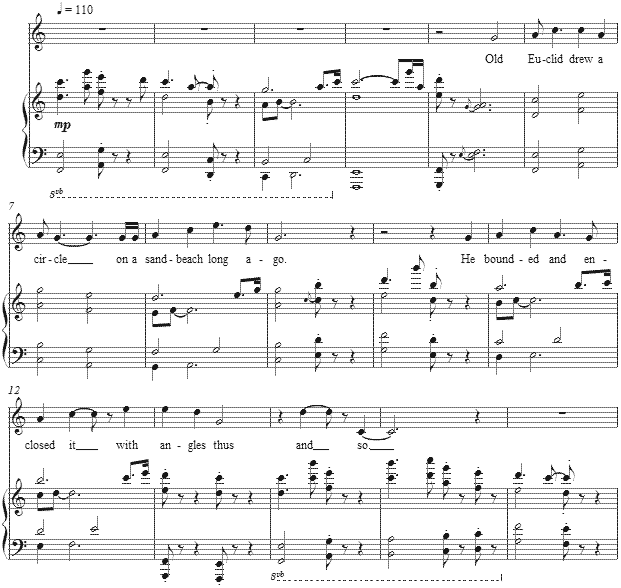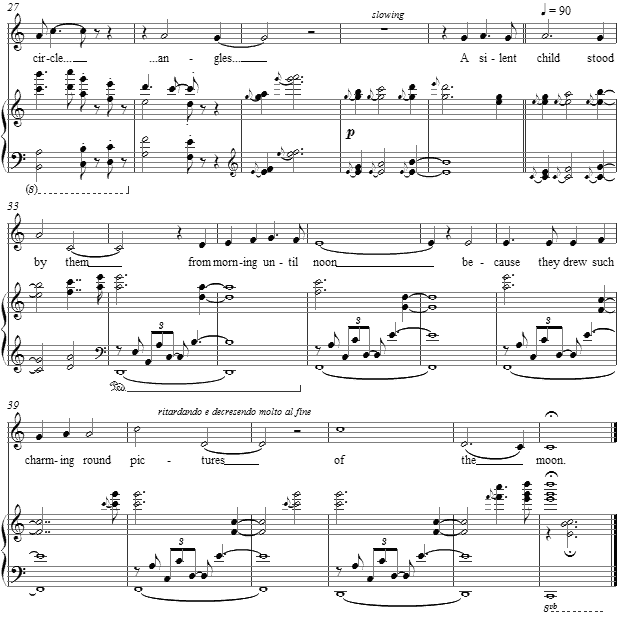Music and Texts of GARY BACHLUND
Vocal Music | Piano | Organ | Chamber Music | Orchestral | Articles and Commentary | Poems and Stories | Miscellany | FAQs
Euclid - (2009)
Vachel Lindsay
for medium voice and piano
Old Euclid drew a circle
On a sand-beach long ago.
He bounded and enclosed it
With angles thus and so.
His set of solemn greybeards
Nodded and argued much
Of arc and of circumference,
Diameter and such.
A silent child stood by them
From morning until noon
Because they drew such charming
Round pictures of the moon.[ 2 pages, circa 1' 50" ]
Vachel Lindsay
Nicholas Vachel Lindsay (1879-1931) was an American poet who promoted "modern singing poetry," as he termed it, in which verses are intended to be sung in some manner. His correspondence with W. B. Yeats indicate his enthusiasm to revive musical qualities in poetry as per the ancient Greek tradition, as we understand it from few extant sources. He emphasized performance and saw poetry "as a performance, as an aural and temporal experience." For this, his poetry should be ripe for composers' setting. The text above comes from The Congo and Other Poems, published 1914
The sweet distinction between the seeming angularity of geometry and romance of "the moon" is made by characterizing the "bounded and enclosed" circle of the "gray beards" with parallel four-note chords which are essentially diatonic clusters separated by octave displacement.
The angularity of the parallel four-note chords yields to appoggiatura and arpeggio as the "silent child" is voiced by lyricism in contrast to the preceding angularity. Having been a student of both mathematics and music, logic and art, I suspect it fair to characterize these sister disciplines in different guises, each valid to its own intellectual domain.
The score for Euclid is available as a free PDF download, though any major commercial performance or recording of the work is prohibited without prior arrangement with the composer. Click on the graphic below for this piano-vocal score.


